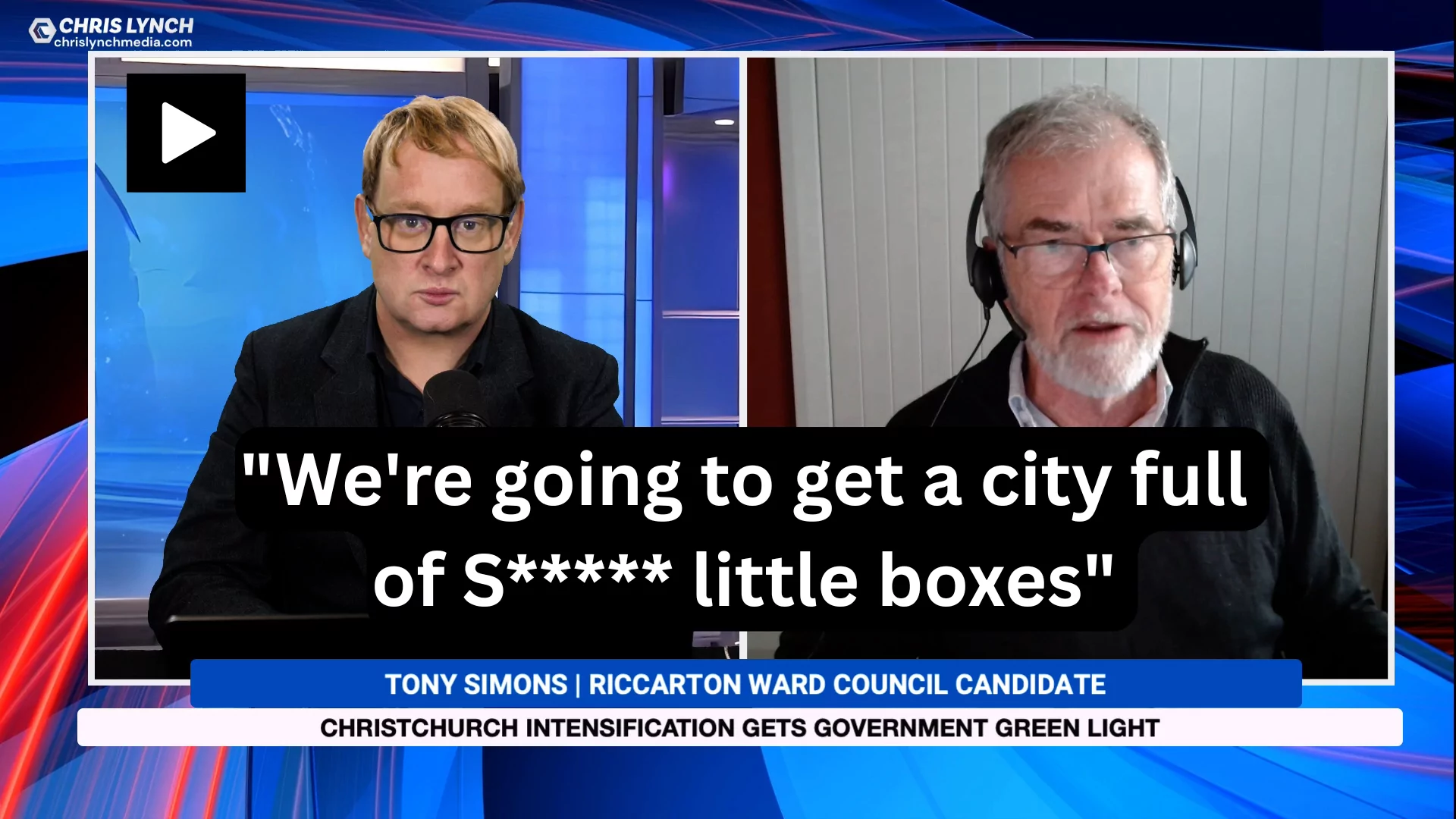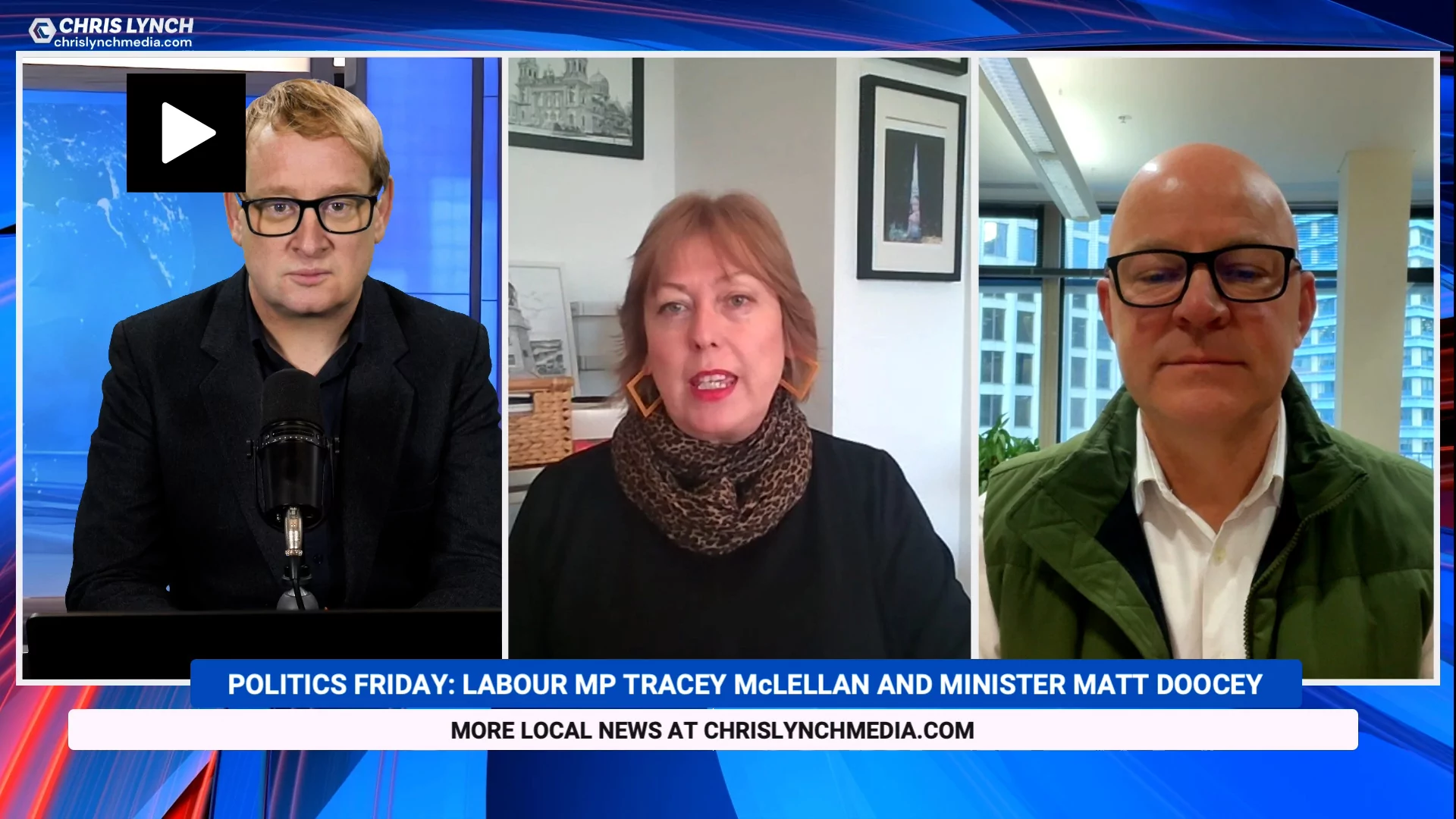Labour MP Tracey McLellan and Ilam MP Hamish Campbell have weighed in on the debate over Public-Private Partnerships (PPPs), the controversial $400,000 restoration of Christchurch’s Chalice sculpture, and Winston Peters’ bill to scrap diversity, equity, and inclusion (DEI) policies.
McLellan criticised the National Party’s enthusiasm for PPPs, arguing that they often lead to higher long-term costs for taxpayers. “Fundamentally, we believe that public institutions, core public infrastructure, should be owned by the public,” she said. “It doesn’t matter how you finance it—whether it’s through a PPP or not—the taxpayer always funds it, so it has to be a good deal for taxpayers.”
She also raised concerns about the lack of transparency regarding the proposed redevelopment of Christchurch Men’s Prison. “We don’t know the full details yet, but it may end up costing taxpayers a lot more in the long run.”
Campbell argued that New Zealand needs private capital to accelerate infrastructure development. “We need investment so we can actually build the infrastructure that we need. That’s good for jobs, it means we’re building more, and it helps get our country moving,” he said. “There’s a massive infrastructure deficit in New Zealand, and we need to look at a whole range of funding options to get projects off the ground.”
Christchurch’s $400,000 Chalice restoration raises eyebrows
The MPs also discussed the Christchurch City Council’s decision to allocate $400,000 to restore the Chalice sculpture in Cathedral Square. While McLellan acknowledged the cost was significant, she said the alternative would be to remove the artwork entirely. “It does seem like a big price tag, but my understanding is we either fix it up and it lasts for another 25 years, or we take it down. That’s the choice before us,” she said.
Campbell pointed out that the breakdown of the costs had not been made public and suggested that regulatory hurdles might be driving up the price.
“The councillors themselves seem surprised at the figure. A lot of projects in New Zealand are more expensive than they should be because of excessive red tape,” he said. “It would be very interesting to see that breakdown, but the fact that we’re not allowed to see it until after the work is done doesn’t seem right.”
McLellan agreed, saying transparency was crucial when public money was involved. “It’s important that ratepayers, as well as taxpayers, are getting value for money,” she said. “Maybe we have to ask a few more questions about that.”
Debate over Winston Peters’ bill to scrap DEI
On the topic of Winston Peters’ proposed bill to remove DEI policies, Campbell said the National Party had not yet discussed the matter in detail, as it was a private member’s bill. However, he reaffirmed that discrimination in any form should not be tolerated. “I believe that no one should be discriminated against based on their gender, their sexuality, their religion, or their race. We shouldn’t stand for discrimination,” he said. “We need to grow the economy so that everybody has opportunities.”
McLellan dismissed the bill as a “stunt,” suggesting Peters was using divisive tactics to appeal to a specific voter base. “It’s Peters trying to be Trumpian in an attempt to win votes and appease a small sector of the country,” she said. “There are systemic barriers that exist. As human beings, we tend to gravitate toward people who are like us. DEI policies help ensure that all people are included, and that doesn’t mean we’re not using a merit-based system—it means we are confronting our own biases as we make decisions.”
School lunch programme under scrutiny
The discussion also touched on mounting complaints over the state of school lunches, with parents and students increasingly unhappy about the quality of food provided.
McLellan blamed changes made by the government, arguing that cost-cutting had compromised a previously successful programme that supported local suppliers and provided healthy meals. “David Seymour decided to muck around with a system that was already working well, and this is the result,” she said. “It’s unacceptable.”
Campbell acknowledged the concerns but pointed out that the scale of the programme—delivering hundreds of thousands of lunches daily—meant there would be occasional issues. “There are about 400,000 lunches prepared around the country every day, and the vast majority arrive on time and as expected. Of course, there have been some horror stories, but this is a massive logistical undertaking, and teething problems are expected,” he said.
However, McLellan argued that the government had no excuse. “That’s a cop-out,” she said. “This programme wasn’t new; it was already running successfully. If they had planned properly, they wouldn’t have these issues.”
Campbell pushed back, saying the previous government had left the programme unfunded. “Under the last government, the cost of living went up dramatically, taking money out of people’s back pockets. That had a huge impact on everyday families,” he said.
McLellan dismissed that argument. “It’s not up to past governments to fund programmes in perpetuity,” she said. “It’s this government’s decision whether to keep programmes running or not. Blaming the previous government is just an excuse.”








